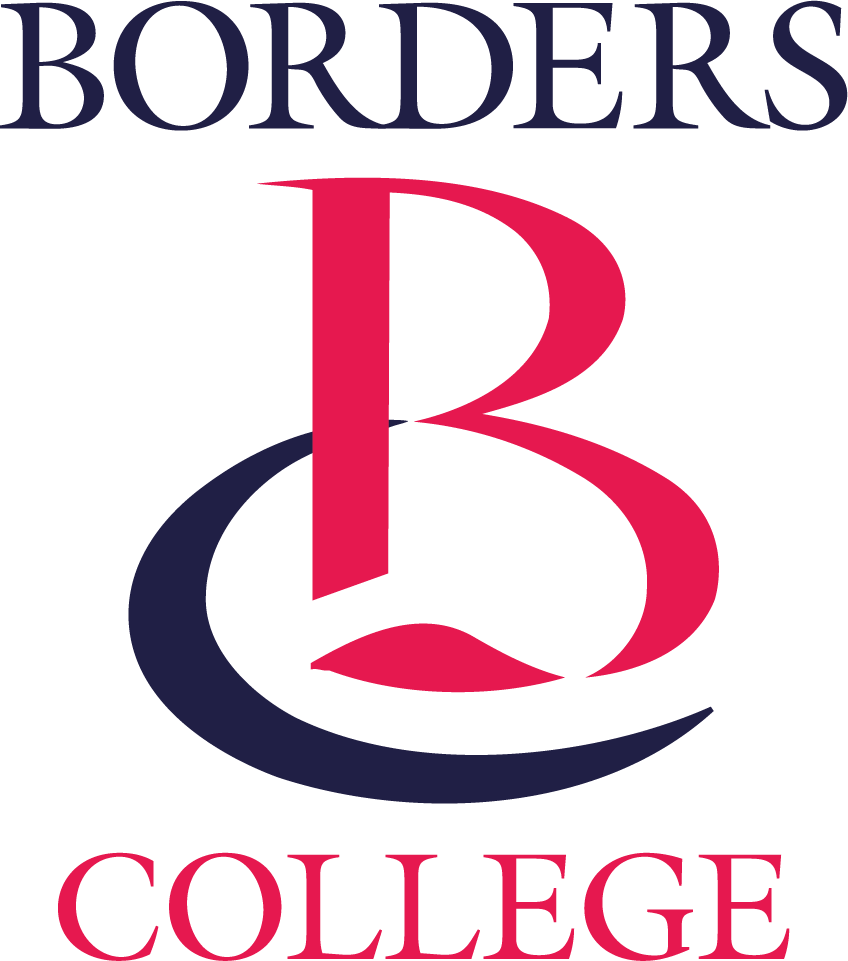Starting at Borders College - Information for students
Student Frequently Asked Questions (FAQs)

Bring a notepad and pen if possible, along with a digital device if you have one. Some courses will be asked to bring kit (e.g. sports kit, riding kit).
Information about this will be in your induction e-mail. You are also advised to wear enough clothes to keep you comfortable in our ventilated spaces. Windows will be open as good ventilation is a requirement to maintain as safe an environment as possible.
Yes - there is a student loan laptop scheme available in college.
Details of how to apply for a laptop were sent to you in your enrolment letter. If you need any extra support, email itsupport@borderscollege.ac.uk
Yes – it’s important to let us know as soon as possible so we can get the right support in place for you. You will get a chance to share this with us through enrolment and induction.
- If you would like to speak to someone about your wellbeing, please contact mentalhealth@borderscollege.ac.uk
A member of staff will be in touch with you once they have reviewed your information. You should expect to hear back within 1 week.
If you have concerns about your mental health, it is important to get in touch with the college. You may be eligible to get support from the College’s mental health team.
- If you would like to speak to someone about getting support for your mental health and wellbeing, please contact mentalhealth@borderscollege.ac.uk
There are lots of staff who can help you while at College.
Our Student Advice Centre is in the main reception - you can pop in any time to ask for help. You can also contact your Students’ Association at bcsa@borderscollege.ac.uk or drop into their office.
Each course has a dedicated Achievement Coach to support you throughout your studies along with your Course Tutors, Lecturers and Curriculum and Learning Managers.
- You will be introduced to these staff members at the start of term as part of your student induction. More information about pastoral support can also be found on the student portal.
- You can access the Student Portal by following this link.
There is support available for all of these groups so please get in touch with the Student Advice Centre if you think you belong to one of these groups.
- More information about how we support these groups can be found on the Student Advice page on the student portal.
- You can access the Student Advice page on our Student Portal by following this link.
You can find information about funding options on the student funding page on the student portal, which can be accessed by following this link.
If you can’t find what you are looking for, or you need more help, you can contact the student funding team on studentfunding@borderscollege.ac.uk or call into the Student Advice Centre and speak to someone.
You should contact Student Funding or call into the Student Advice Centre if you are struggling for money.
The college has a discretionary hardship fund and may be able to offer non-repayable grants to help you.
If you are concerned about your finances or in need of support, please contact our student funding team on studentfunding@borderscollege.ac.uk
Borders College welcomes students who require an Assistance Dog. Please let us know in advance if you do have a professionally trained and accredited assistance dog to help you with your daily life and independence. This will enable us to ensure that College staff are aware of the presence of your assistance dog and the requirement for this.
Assistance Dog is a generic term for a guide, hearing, or service dog specifically trained to do three or more tasks to mitigate the effects of an individual’s disability.
The presence of a dog for protection, personal defence, or comfort does not qualify that dog as an assistance dog and as such we are unable to accommodate your dog on this basis.
It will be expected that all accredited assistant dogs wear the appropriate identification tags, leads or harnesses associated with the service they provide while on campus.
Further definitions:
Guide Dog: A dog that guides individuals who are blind or visually impaired. The presence of a dog for protection, personal defence, or comfort does not qualify that dog as a guide dog.
- Guide Dogs help their users to travel around independently and safely, giving their users more independence, freedom and confidence.
- Guide Dogs make navigating streets much less stressful by assisting their users to find locations, avoid obstacles and stop at curbs.
- Guide Dogs make it easier for the person who is blind or vision-impaired to use public transport, navigate shopping centres and buildings, find doors, seats and pedestrian crossing buttons.
- Guide Dogs provide companionship and promote social inclusion.
Hearing Dog: A dog that alerts individuals who are deaf or hard of hearing to specific sounds. The presence of a dog for protection, personal defence, or comfort does not qualify that dog as a hearing dog.
- Hearing Dogs assist deaf and hard of hearing individuals by alerting them to a variety of household sounds such as a door knock or doorbell, alarm clock, oven buzzer, telephone, baby crying, name call or smoke alarm.
- Hearing Dogs are trained to make physical contact and lead their deaf partners to the source of the sound.
- Hearing Dogs are generally mixed breeds acquired from animal shelters and are small to medium in size. Prior to formal audio response training, the puppies/dogs are raised and socialised by volunteer puppy raisers.
- Hearing Dogs are identified by leash and/or vest.
Service Dog: A dog that works for individuals with disabilities other than blindness or deafness. Service dogs are trained to perform a wide variety of tasks including but not limited to; pulling a wheelchair, bracing, retrieving, alerting to a medical crisis, and providing assistance in a medical crisis.
- Service Dogs are professionally trained dogs that help mitigate many different types of disabilities.
- Service Dogs can be trained to work with people who have power or manual wheelchairs, have balance issues, have various types of autism, need seizure alert or response, need to be alerted to other medical issues like low blood sugar, or have psychiatric disabilities.
- Service Dogs can help by retrieving dropped objects that are out of their person's reach, by pulling wheelchairs, opening and closing doors, turning light switches off and on, barking to indicate that help is needed, finding another person and leading the person to the handler, assisting ambulatory person to walk by providing balance and counterbalance, providing deep pressure, and many other individual tasks as needed by a person with a disability.
- Service dog types include: Mobility Service Dog, Seizure Service Dog, Autism Service Dog, Diabetic Alert Service Dog, Psychiatric Service Dog, Service Dogs for Veterans with Military-related PTSD and Medical Alert Service Dog.
Yes! Our Student Association deliver a fun Welcome Festival of activities during the first week of term.
During Welcome Week, there will be opportunities for you to make friends, settle into life at college and see everything that the college has to offer.
Keep an eye on your student e-mails and Borders College Students’ Association’s social media pages to find out what’s happening.
There will be a mix of online and in-person events, so whether you are in college or learning from home, you can get involved.
All courses cover employability skills, but the content of this will vary depending on what course you are on.
You may have the opportunity to gain a realistic workplace experience through our work placements programme. More information about this will be shared with you at induction.
Students enrolling on a fulltime Further Education level course
An electronic travel ticket is normally available to students who live more than 3 miles from their College base and who qualify for funding support. The public service bus routes cover all the main towns in the Borders at the times required.
If you live in Scotland and are 5-21 years old you are eligible for a card giving you free bus travel. Applications for cards are now open.
How to Apply for Free Bus Travel
There are several ways to apply for a new or replacement Young Scot National Entitlement Card (Young Scot NEC):
Online at getyournec.scot
Directly with your local council. You can find their details on the Young Scot website Young Scot National Entitlement Card | Young Scot
Already have a National Entitlement Card (NEC)?
If you’re aged between 16 and 21 and you already have an active NEC or Young Scot NEC, you can download free bus travel onto your existing card using the Transport Scot Pass Collect app. This means you may not need to apply for a new card to access your free bus travel. Active cards are those received since 2016 – they’ll have a long number next to the ITSO logo and, if there’s a date of birth shown, it will be highlighted with a pink strip.
Train Travel
If you are travelling to College by train, remember that you can get discounted rail travel by applying for a 16-24 railcard. All information about bus and train travel can be found on our website at https://www.borderscollege.ac.uk/life-at-borders.
Students enrolling on a Higher Education (HNC/HND) Level Programme
Higher Education Students are entitled to apply for funding support from Students Awards Agency Scotland (SAAS). Students on SAAS support receive a contribution towards travelling expenses within their award and are required to budget for their daily travel to and from College from the monthly SAAS allowance paid.
Sustainable Travel
Travelling to Borders College
The College aims to encourage both students and staff to utilise sustainable and integrated modes of transport for commuting to and from College. Our objectives are to minimise environmental impact, improve safety, and ensure our facilities and services are accessible to all sections of society.
Please ensure you follow all public transport guidance in terms of face coverings and ventilation.
We encourage students to make use of public transport wherever this is possible. However, if you require to travel by car, there is a large public car park in front of the college which is free to use.
This can get quite busy on some days during the week, however there are alternative parking options a short walk from the campus. There is also a regular town bus service (Service No 74) which passes close to the campus hourly throughout the day.
